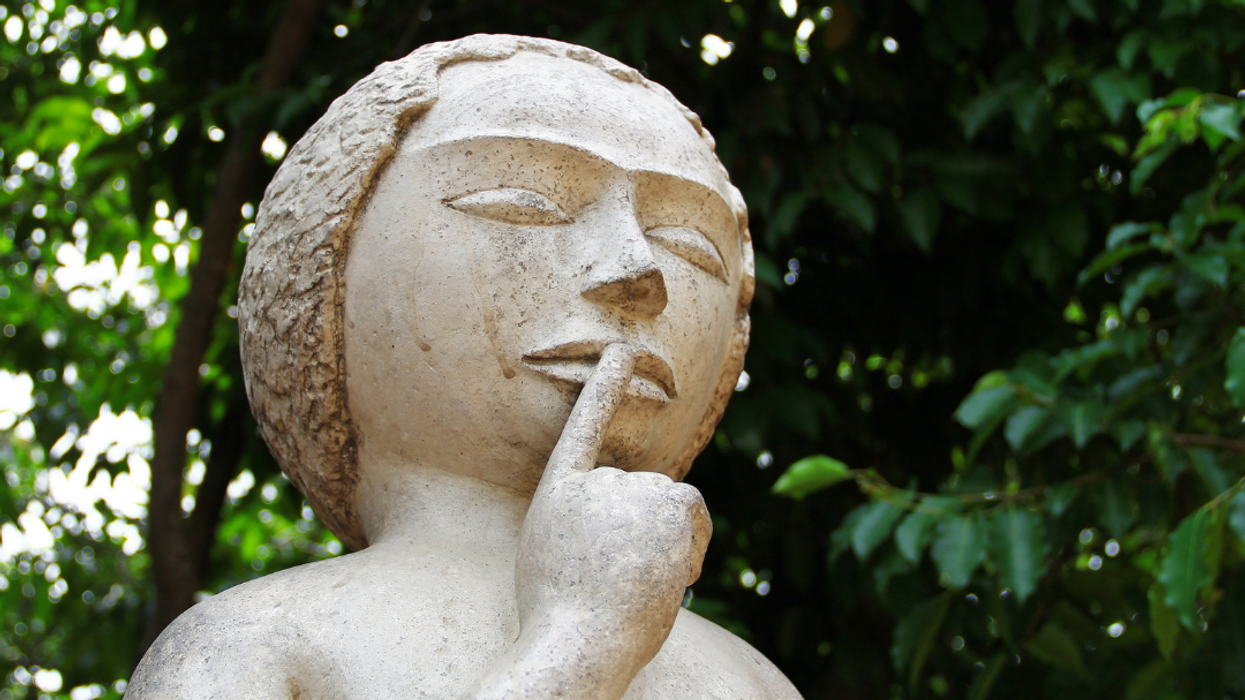What would you do if your whole world was suddenly turned upside down?
Your school was transformed into a bomb shelter. People you grew up with and said hello to at the grocery store are gone, having left or been killed. You don't know what it will be like to leave, but you know you can't stay. You have to part with everything and everyone you know — from family to your home to beloved pets — and hope you'll be reunited one day.
You say goodbye to the life you knew and dreamed of and say hello to an entirely new world filled with both pain and possibility.
For many of us, this is a situation we can't even imagine, but it's a reality for refugees. The Ad Council designed a scenario to show people what it might be like to have their lives uprooted. Watch what happens.
We can try to imagine what it's like, but the truth is, this is a reality for nearly 20 million people around the world — refugees fleeing conflicts they didn’t start and are powerless to end.
For many people, this isn't hypothetical. Refugees are people in an impossible situation. Relocation for them isn't a choice; it's a matter of survival.
Kakuma refugee camp. Image by EC/ECHO Anna Chudolinska/Flickr.
Take twins Paw Lah Say and Paw Lah Htoo who, at 13, fled to a refugee camp in Thailand. 13 years later, they entered America.
Angie Smith, photographer and storyteller, shared their story with the World Economic Forum.
The twins, along with their father and brother, were forced to flee their home in Burma due to religious and ethnic persecution — the Burmese military set fire to all of the houses in their village. With their lives, and the lives of their friends and neighbors, literally going up in smoke, they sought safety in an enclosed refugee camp in Thailand.
Now, here's the thing about enclosed camps: You're not allowed outside of the camp; the camp is your world.
Mae La refugee camp in Thailand. Image via Mikhail Esteves/Wikimedia Commons.
As a result, they were completely dependent on the rationing of resources to survive. There was no opportunity to work or eke out some sort of a living. They were "safe," but they were in limbo.
After a friend from the camp was resettled in Boise, they requested the same opportunity.
After a lengthy and difficult resettlement process, they got their wish — Idaho would become their home.
View from the Boise Train Depot, taken by Charles Knowles/Flickr.
Now in their twenties, the twins live in the United States. They told Angie Smith, "everything is new." After spending half of their lives in an enclosed refugee camp, working hard just to survive, they're given the chance to really begin their lives.
Unfortunately, they had to leave their father and brother behind.
The twins' story isn't unique. There are so many people, just like them, fleeing war and persecution and clinging to hope.
Refugees want the things so many of us take for granted: the chance to work. To laugh. To walk down a street without fearing for their lives. To be with their families. To know that they have a future.
A little girl from Burma and her friend in a refugee camp on the border of Burma and Thailand via Mikhail Esteves/Flickr.
It can be easy to become numb to the refugee crisis when we think of refugees as sheer numbers, rather than people. Their stories are so important because they're so much more than the term "refugee." And they deserve the chance to live their lives, freely.
With nearly 20 million refugees in need of assistance, and so many families ripped apart, there's a lot more work to be done. Find out how you can help families who are in need of the hope and promise that comes with a fresh start.






 The more passionate you are about your goals, the more secretive you should be.
The more passionate you are about your goals, the more secretive you should be.  Beaver in water. Photo by
Beaver in water. Photo by  An actual beaver dam on the now-thriving Price River
An actual beaver dam on the now-thriving Price River A man and woman chatting.via
A man and woman chatting.via  Coworkers having a conversation.via
Coworkers having a conversation.via  Coworkers having a conversation.via
Coworkers having a conversation.via  A sanitation worker giving the big thumbs up.via
A sanitation worker giving the big thumbs up.via
There's a reason why some people can perfectly copy accents, and others can't